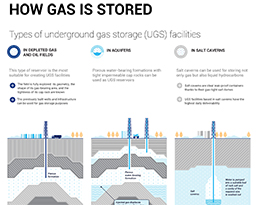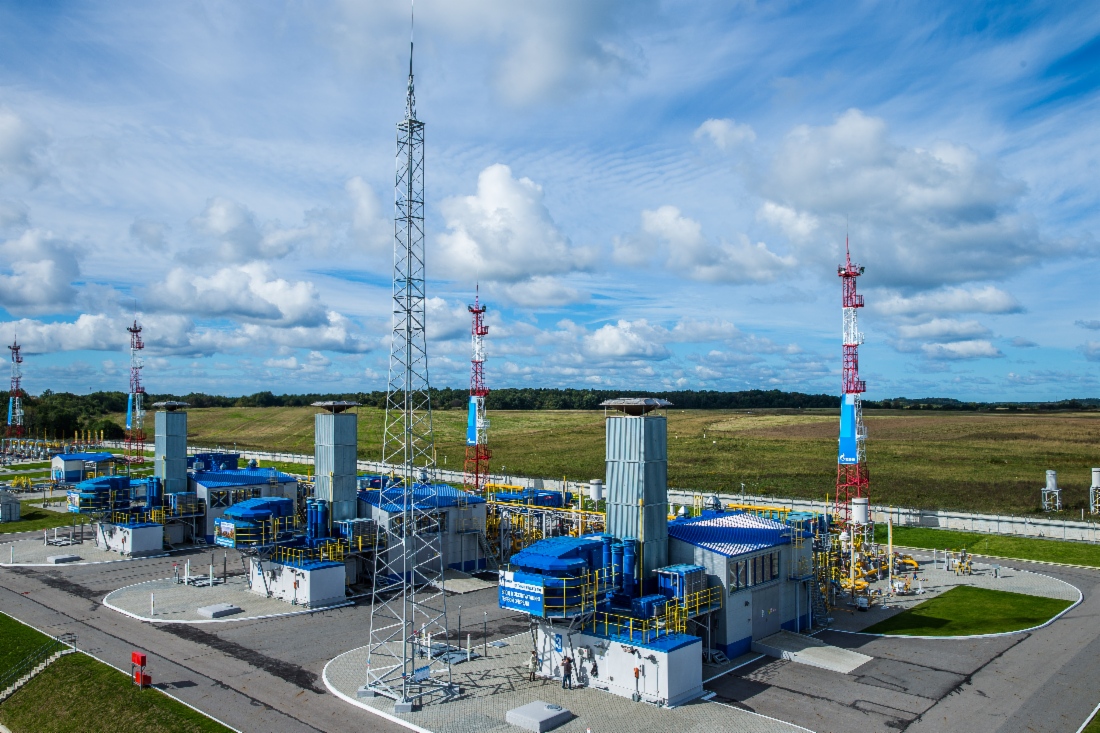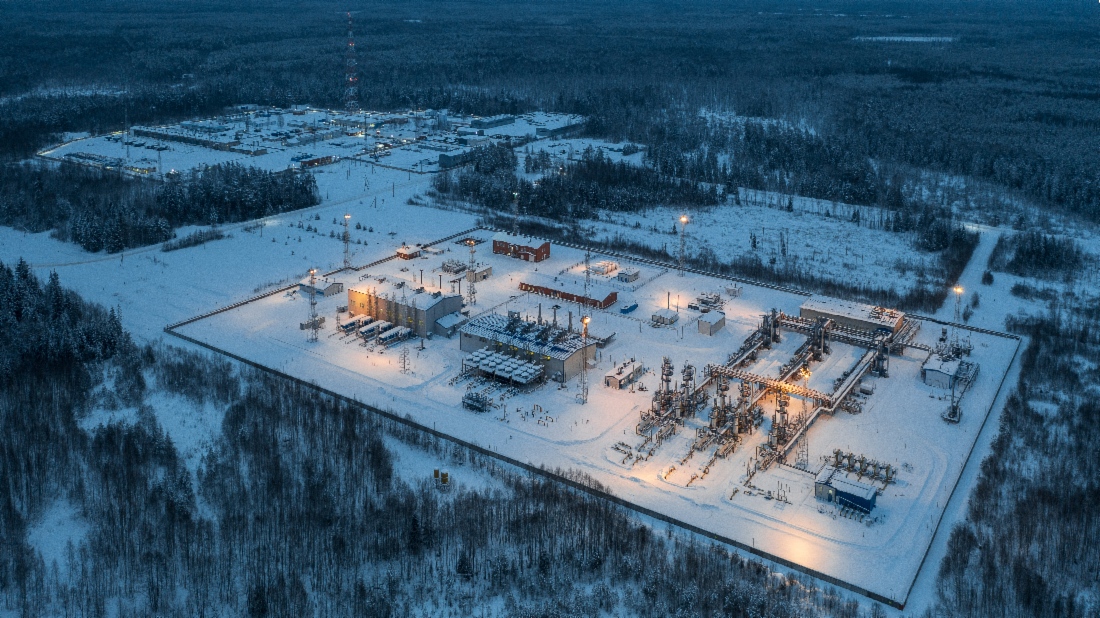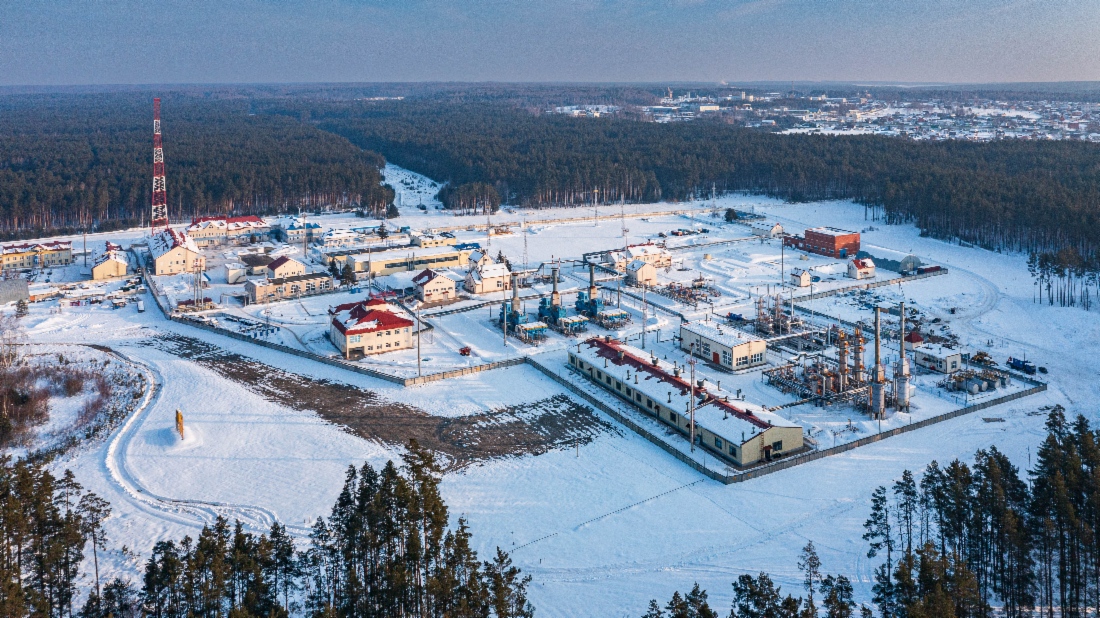Underground gas storage
 How is gas stored and what are UGS facilities
How is gas stored and what are UGS facilities
Infographics
The throughput of trunklines conveying natural gas from fields to places of consumption is relatively stable. However, gas consumption is mainly characterized by seasonal fluctuations. In order to reduce peak loads and ensure flexibility and reliability of gas supplies, special compensation facilities are used: gas storages capable of accumulating excess gas, storing it and, whenever gas demand grows, providing it to consumers. For that purpose, underground gas storage (UGS) facilities are created in depleted hydrocarbon fields, aquifers, or salt caverns.
Gazprom's UGS facilities in Russia
UGS facilities are situated in the main gas consuming regions and constitute an integral part of Russia's Unified Gas Supply System. The UGS facility network provides 20–40 per cent of gas supplied by Gazprom during the heating season. This is the most efficient and eco-friendly way available to optimize global gas supply systems.
In Russia, Gazprom operates 23 UGS facilities in 27 geological structures, with 17 of said facilities located in depleted gas fields, 8 – in aquifers, and 2 – in salt rock deposits.
By the 2023–2024 autumn/winter period, the working gas inventories in the Company’s UGS facilities in Russia amounted to 72.842 billion cubic meters.









